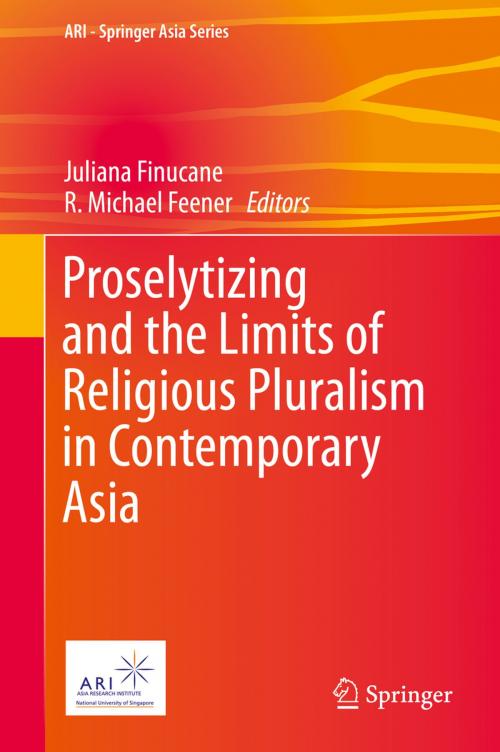Proselytizing and the Limits of Religious Pluralism in Contemporary Asia
Nonfiction, Social & Cultural Studies, Social Science, Anthropology, Religion & Spirituality| Author: | ISBN: | 9789814451185 | |
| Publisher: | Springer Singapore | Publication: | October 21, 2013 |
| Imprint: | Springer | Language: | English |
| Author: | |
| ISBN: | 9789814451185 |
| Publisher: | Springer Singapore |
| Publication: | October 21, 2013 |
| Imprint: | Springer |
| Language: | English |
This volume brings together a range of critical studies that explore diverse ways in which processes of globalization pose new challenges and offer new opportunities for religious groups to propagate their beliefs in contemporary Asian contexts. Proselytizing tests the limits of religious pluralism, as it is a practice that exists on the border of tolerance and intolerance. The practice of proselytizing presupposes not only that people are freely-choosing agents and that religion itself is an issue of individual preference. At the same time, however, it also raises fraught questions about belonging to particular communities and heightens the moral stakes in involved in such choices. In many contemporary Asian societies, questions about the limits of acceptable proselytic behavior have taken on added urgency in the current era of globalization. Recognizing this, the studies brought together here serve to develop our understandings of current developments as it critically explores the complex ways in which contemporary contexts of religious pluralism in Asia both enable, and are threatened by, projects of proselytization.
This volume brings together a range of critical studies that explore diverse ways in which processes of globalization pose new challenges and offer new opportunities for religious groups to propagate their beliefs in contemporary Asian contexts. Proselytizing tests the limits of religious pluralism, as it is a practice that exists on the border of tolerance and intolerance. The practice of proselytizing presupposes not only that people are freely-choosing agents and that religion itself is an issue of individual preference. At the same time, however, it also raises fraught questions about belonging to particular communities and heightens the moral stakes in involved in such choices. In many contemporary Asian societies, questions about the limits of acceptable proselytic behavior have taken on added urgency in the current era of globalization. Recognizing this, the studies brought together here serve to develop our understandings of current developments as it critically explores the complex ways in which contemporary contexts of religious pluralism in Asia both enable, and are threatened by, projects of proselytization.















